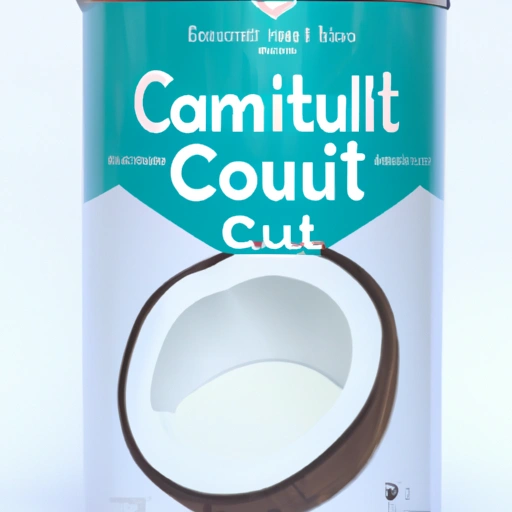Light Coconut Milk
Description

Light coconut milk is a diluted version of regular coconut milk, offering a thinner consistency and lower fat content. It is made by pressing grated coconut meat and mixing it with water, resulting in a less rich liquid that still retains the tropical flavor of coconut. It is a popular choice for those looking to add coconut flavor to dishes while keeping calorie and fat intake in check. Light coconut milk can be found in both canned and carton forms, and it is used in a variety of culinary traditions around the world.
Common uses
Light coconut milk is commonly used as a dairy-free alternative to milk or cream in cooking and baking. It imparts a creamy texture and coconut flavor without the heaviness of regular coconut milk. It is also popular as a base in smoothies, non-dairy coffee creamers, and in making lighter versions of soups, curries, and sauces.
Nutritional value
Calories
Light coconut milk typically contains about 50 calories per 1/4 cup (59 ml / 2 fl oz) serving.
Protein
It generally provides around 0.5 grams of protein per 1/4 cup serving.
Fat
The fat content is usually about 5 grams per 1/4 cup serving, with most of it being saturated fat.
Carbohydrates
Light coconut milk contains approximately 1 gram of carbohydrates per 1/4 cup serving.
Vitamins
While not a significant source of vitamins, light coconut milk may contain small amounts of some B vitamins.
Minerals
It can be a source of minerals such as potassium, magnesium, and iron, although in lower quantities compared to full-fat coconut milk.
Health benefits
Light coconut milk is lower in calories and fat than regular coconut milk, making it a more calorie-conscious option for those managing their weight. The presence of medium-chain triglycerides (MCTs) in coconut milk may support metabolism and provide a quick source of energy. Additionally, it is lactose-free and can be a good alternative for those with lactose intolerance or dairy sensitivities.
Potential risks
Despite its lower fat content, light coconut milk is still high in saturated fats, which should be consumed in moderation. Overconsumption may contribute to an increased risk of heart disease. People with coconut allergies should avoid coconut milk altogether.
Common recipes
Light coconut milk is used in a variety of recipes including Thai and Indian curries, soups like Tom Kha Gai, tropical smoothies, pina coladas, dairy-free desserts, and lighter sauces.
Cooking methods
It can be used in simmered dishes, baked goods, and as a direct substitute for dairy milk or cream in most recipes.
Pairing with other ingredients
Light coconut milk pairs well with flavors such as lime, cilantro, ginger, curry, and tropical fruits like pineapple and mango.
Summary
Light coconut milk is a versatile ingredient that offers a lighter alternative to traditional coconut milk, with reduced fat and calorie content. It is suitable for various dietary preferences, including vegan and lactose-free diets. While it provides certain health benefits, it should be used in moderation due to its saturated fat content. Light coconut milk is a flavorful addition to a wide range of dishes, enhancing them with a touch of tropical taste.